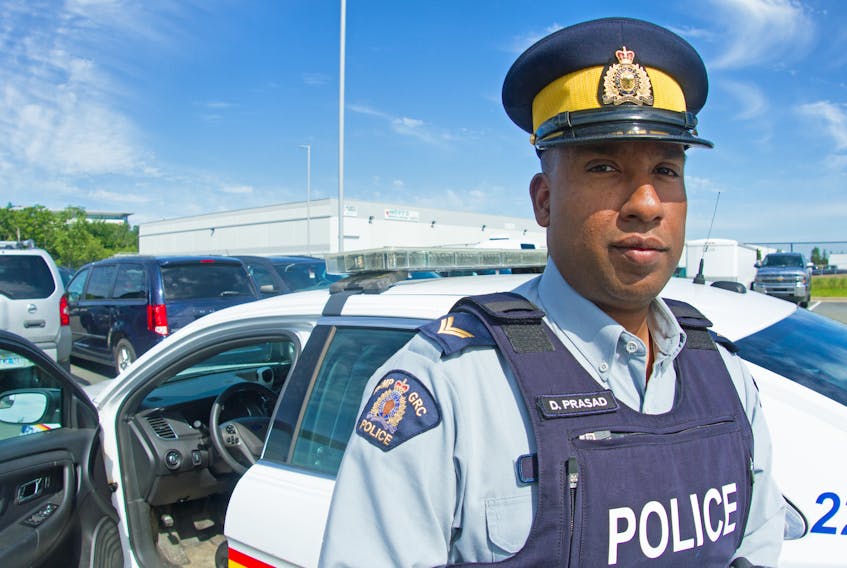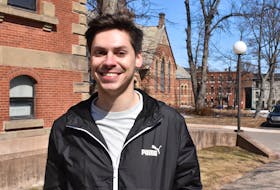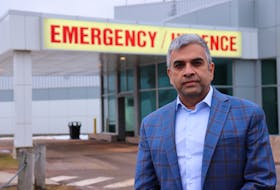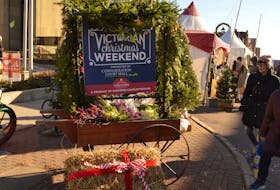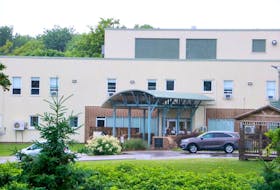EDITOR'S NOTE: A survey last summer concluded that most Nova Scotians believed they were less healthy but at the same time were feeling less stress compared to two years ago. That conversation prompted us to look into the issue of stress in our lives, specifically those jobs that might be considered higher on the stress scale. We spoke to a Mountie, an emergency doctor and a taxation specialist for this series.
As with many occupations, tough decisions are par for the course in police work.
But unlike most jobs, how an officer handles a particular situation can have life-and-death consequences.
“They go to a call, do I pull my gun out or not, that’s a critical decision because a firearm can seriously harm or kill somebody,” said RCMP Const. Deepak Prasad. “So you’re always making these critical decisions.”
Prasad worked the frontlines as a Mountie in the Antigonish and Port Hawkesbury area for 10 years. He’s now based at the RCMP's provincial headquarters in Dartmouth as their wellness peer support co-ordinator.
While officers on the beat face particular challenges, he’s careful to include all RCMP personnel – such as dispatchers and office staff – when talking about stress on the job.
“We’re all exposed to a number of different things, right? Of course our staff are exposed to every single (stresser) that any other occupation would be.”
And the usual challenges of balancing your personal life and your work are compounded by the often dangerous and traumatic daily routine of a police officer.
“So what we’re saying is, take some time for yourself to decharge and recharge on your mindfulness by spending some time by yourself or with your family or loved ones,” Prasad said.
When he started police work ten years ago, the importance of providing mental health resources had just started to show up on the radar of RCMP management.
“We didn’t have the Road to Mental Readiness,” said Prasad, referring to the program every training officer must undergo. “Now it’s compulsory training for all of our staff at the academy.”
While calls to incidents such as domestic abuse, car accidents and robberies are part of a Mountie’s routine, sometimes they must go into action in unusual circumstances.
On Nov. 11, 2018, Prasad and Const. Christine Pelly were marching in a Remembrance Day event in Antigonish when an elderly man collapsed in front of them.
Pelly called 911 while Prasad lowered the man to the ground and, along with several firefighters, performed CPR and used a defibrillator to restart his heart. Paramedics took over and the man survived.
Prasad and Pelly received national life-saving awards from the RCMP for their quick response.
One of the most dangerous situations involves what you might think would be the most routine duties: traffic stops.
“When we go to a gun call, we have someone calling in, usually giving us details, their eyes are already on scene,” he explained. “ When you pull over a person, we don’t know who’s in the car, the car could belong to the (driver) but it could be a stolen vehicle, it could be someone else.”
Mounties are trained to keep relaxed while keeping extremely alert to their surroundings, not just the vehicle and occupants.
“A lot of our stress management is repetitive constant training that we’ve given our staff (which helps) them visualize (the scene) and have that controlled breathing and just be able to get into an area where they can control their body functionality,” Prasad said.
Prasad said honing these skills takes time but, as with most occupations, it becomes easier as the officer gains more experience.
“But a lot of it, going back to what they taught us at the academy, (is) working out, eating healthy, trying to get good sleep, drinking a lot of water, having a balanced meal, so a lot of the stuff that we’re taught how to manage our stress,” he said, “especially if you’re a new recruit.”
When an office starts out on the beat, they face many unknowns, usually in a new community. It’s a whole other ballgame compared to the controlled training environment.
“So a lot of it came back to taking care of self and that’s what we’re pushing out to staff. We want them to have some type of play, whether it be sports play, mindful reading, sitting and listening to music, going to social gatherings to recharge. … Whatever it takes just to get back out there and to kind of separate yourself a bit from the policing business to something you’re doing just for yourself.”

